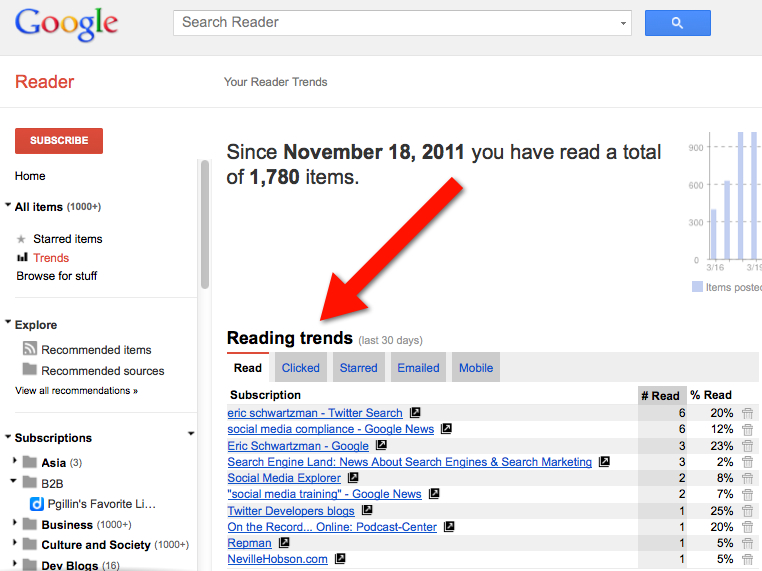The imminent death of the leading fee social media monitoring service has stirred up quite a ruckus.
 A whopping 65% of over 7,500 users surveyed by Lifehacker called Feedly, with it’s sleek interface, news suggestion algorithm and integrated social sharing features is the best alternative to Google Reader, which will be discontinued on July 1, 2013.
A whopping 65% of over 7,500 users surveyed by Lifehacker called Feedly, with it’s sleek interface, news suggestion algorithm and integrated social sharing features is the best alternative to Google Reader, which will be discontinued on July 1, 2013.
Based on their competitors — which are The Old Reader, NewsBlur, Netvibes and Pulse (acquired by Linkedin for $90 million last week) — I’m beginning to agree.
But after an in-depth discussion with Feedly cofounder Cyril Moutran about his service’s strengths and weakness, I discovered two essential features that are noticeably absent.
If you’re using Google Reader as a news reader, your transition to Feedly will be seamless. But if you’re using Google Reader for market research, you’re in for a rude awakening once you dig beneath the surgface into Feedly, or any other of the free RSS readers.
Features that Die with Google Reader
The first feature you’re going to lose is search. There’s no way to search feeds, or collections of feeds, in Feedly. They used to have the feature, but shut it down on the heels of acquiring 3 million new users. Why?
Maintaining search functionality in a web app is resource intensive. This was one of the big strengths of Google Reader, since search is what Google does best. You could subscribe to feeds based on keyword phrases, collect links over time, and then slice and dice those collections by another search phrase to put your finger on whatever it is you needed right then. Unfortunately, this luxury is going away.
And while it’s not necessarily a feature, another thing that is going to be awful tough for any of the smaller news reader apps to deliver is real time results. Google Reader delivered links to articles as soon as they were indexed by the search engine. Expect varying degrees of latency in the delivery of new items from Feedlt and their competitors.
The second critical feature that goes away is consumption analytics. While they have the data, Feedly does not allow you to track your reading or subscription trends. Google Reader’s Trends lets you see which of your feeds deliver the most items, and which ones deliver stories you actually read.
Trends were a great way to do a poor man’s social media audit. You could subscribe to a bunch of feeds, monitor them over a month or two and use Trends to spot hot topics in any industry. Not anymore. There is no comparable feature in Feedly.
I’ll be talking to CEO Freddy Mini about Netvibe’s premium feed analytics features next week and will let you know how his service measures up. I’ll be recording our discussion for On the Record…Online, which you can subscribe to on iTunes or by email if you’d like to listen.
But don’t be fooled. While Feedly is an excellent RSS news reader, it does not provide the critical market research features business users need.
Here’s the link to the podcast of my conversation with Cyril Moutran about Feedly as an alternative to Google Reader.